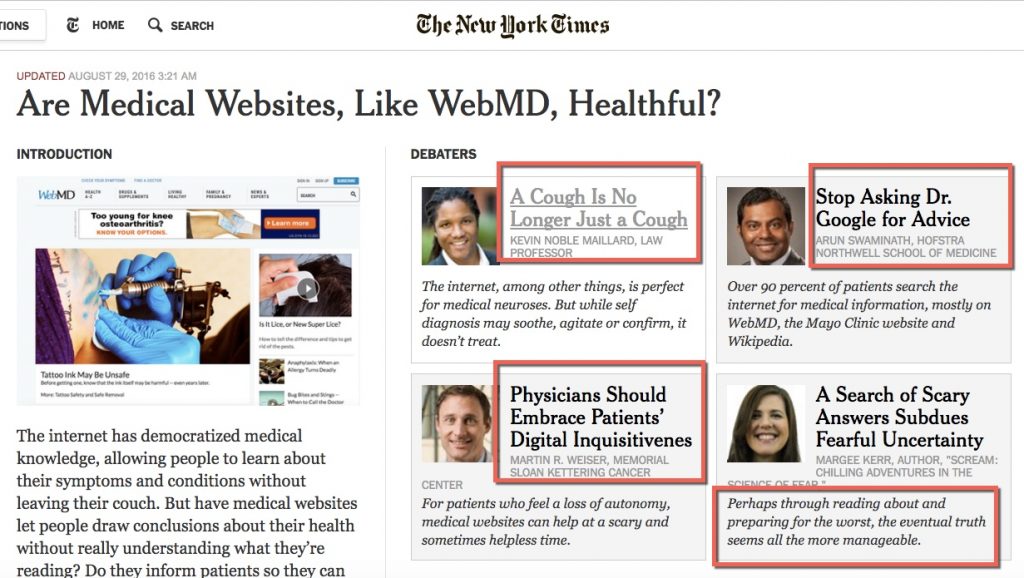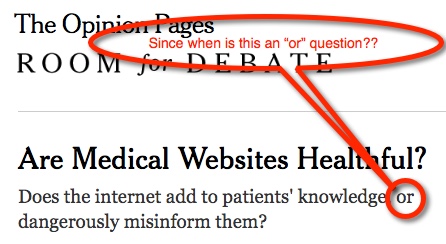Thanks to @SusanCarr, the highly patient-centered editor of Patient Safety & Quality Healthcare, for this tipoff this morning. I only have time right now to post this & run out the door. Click the image to visit the piece on the Times site, but first, consider my questions below.
My initial thoughts – but I haven’t had time to read the piece yet:
- It’s a valid question, which we’ve been talking about here for years.
- An inside page of the feature (see screen capture, right) asks a really wrong-headed question: “Does the internet add to patients’ knowledge or dangerously misinform them?” OR?? That’s exactly like asking whether email is fast “or” has scammers.
- Who gets to say whether a site proved useful to the patient?
- Why the hell were no e-patients among the sources interviewed? (See the red boxes in the top image.)
- C’mon, Times, do you really not know about peer-to-peer healthcare, as documented by Pew Research and as practiced at places like SmartPatients.com and Inspire.com and more?
- This isn’t just an “uppity patient” complaint; in 2012 the Institute of Medicine said healthcare should be “anchored on patient needs and perspectives.” So what the hell are we doing four years later discussing this question with no patient voices??
Besides, given the well documented giant cracks in the research and peer review processes, we could ask the same question about peer reviewed literature:
Does “authoritative” peer reviewed literature add to doctors’ knowledge, or dangerously misinform them?
For compelling counterpoints, see the patient comments on our Google Mug post last December.)
Please, all, dive in, read, and comment. So many assumptions are hidden behind that headline’s question, not to mention their choice of whom to interview.








Put in a comment on the NY Times site–it was just published. Agree that their bias lurks in who they interviewed and how they framed the story. Back to the ’80’s.
I also posted a comment, and wonder why this silly article appeared. Back to 1952 and ‘Doctor” knows best!
PS. We wouldn’t be in the mess we are if there was a commitment to education and engagement of the patient.